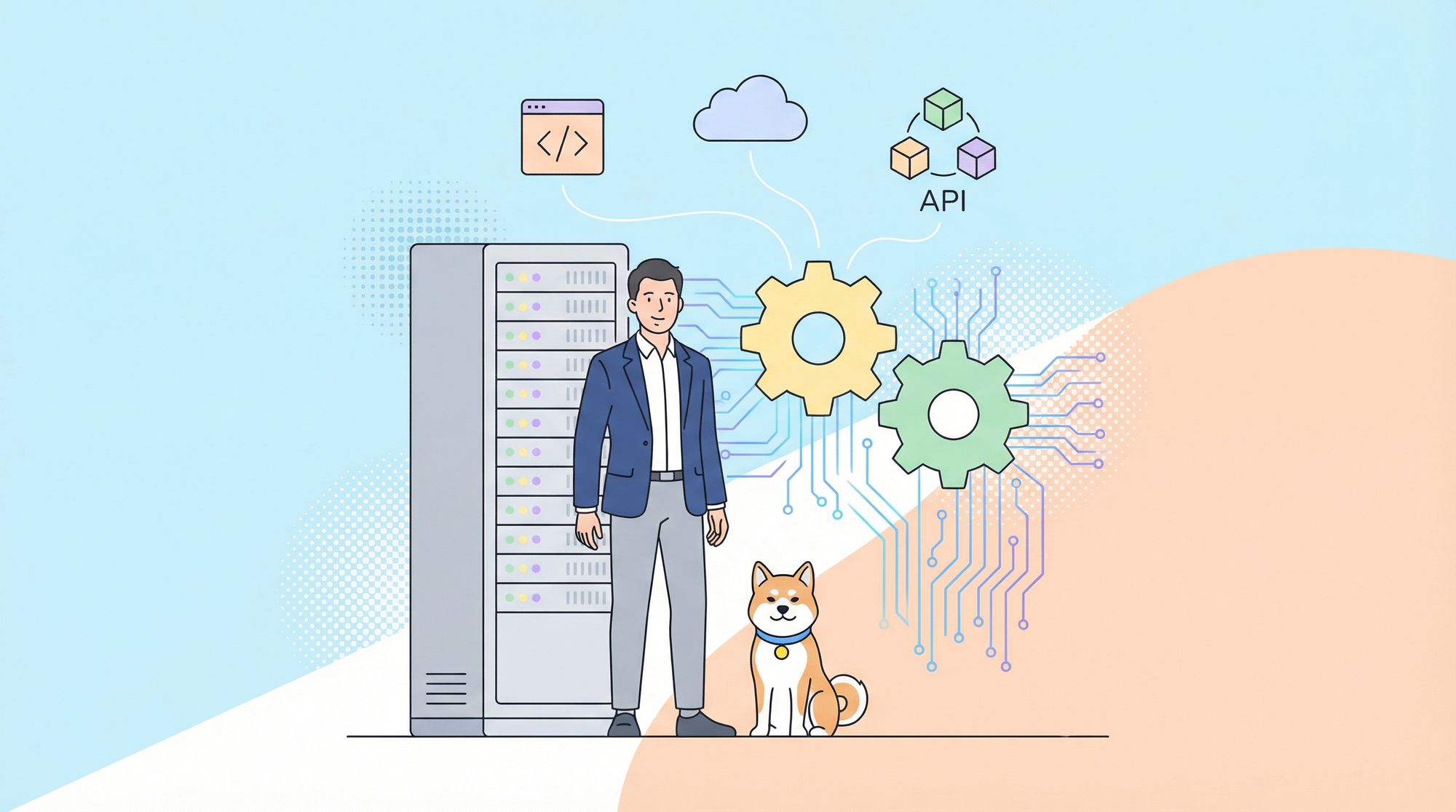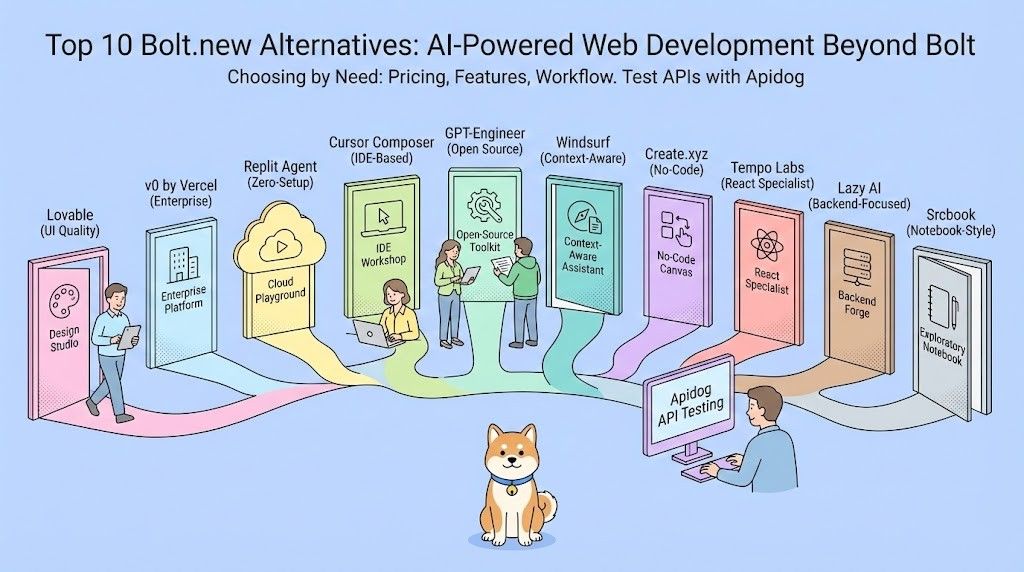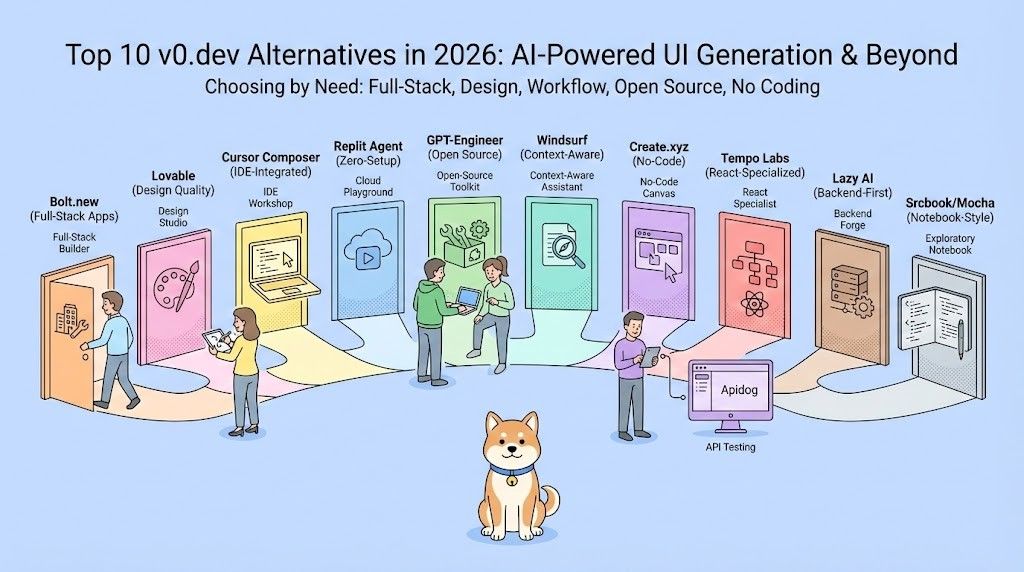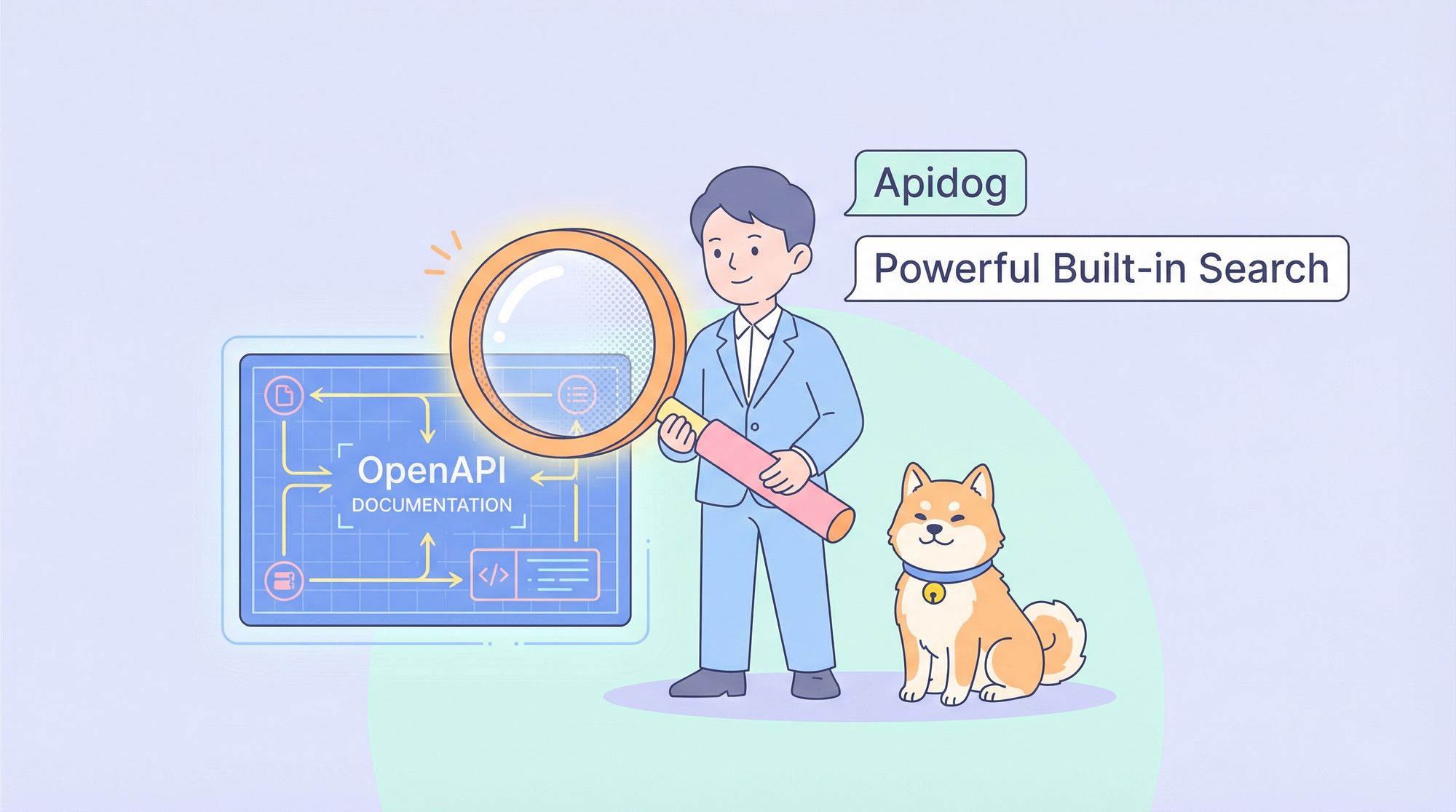DevOps has evolved into a crucial practice for improving collaboration and efficiency between development and operations teams. But with the integration of AI, the game has changed entirely. AI-powered DevOps tools streamline processes, enhance automation, and help teams make data-driven decisions more quickly. If you're looking for the best AI DevOps tools to boost your workflow in 2025, we’ve got you covered.
Why AI DevOps Tools are a Game-Changer
Before diving into individual tools, let's explore why AI DevOps tools are becoming so critical in the development lifecycle. As businesses continue to adopt cloud-native and microservices architectures, the need for agility, efficiency, and scalability is increasing. This is where AI steps in.
AI DevOps tools can automate repetitive tasks, provide predictive analytics, and ensure better collaboration between development and operations teams. From automating deployments to predicting downtime, AI enhances every aspect of the traditional DevOps cycle. This results in quicker deployments, more reliable infrastructures, and lower costs in the long run.
Key Benefits of AI in DevOps:
- Automation of Routine Tasks: Reduces manual errors and frees up engineers to focus on more critical tasks.
- Predictive Analysis: AI helps in predicting outages, security threats, and bottlenecks.
- Faster Deployments: Streamlined workflows allow for faster, more frequent releases.
- Better Resource Management: AI optimizes resource allocation for improved performance and cost savings.
Top AI DevOps Tools
Now that we understand why AI is critical for DevOps, let’s dive into some of the best AI DevOps tools available today, including Cursor AI and Vercel v0.
1. Cursor AI
Cursor AI is an emerging tool that’s making waves in the world of DevOps and development. Essentially, it's an AI-powered code editor that helps developers write, debug, and improve their code faster.

With the growing complexity of modern software, Cursor AI enhances coding efficiency by:
- Providing code suggestions: Whether you're stuck on a particular code block or looking for an efficient algorithm, Cursor AI has you covered.
- Code debugging: It helps identify errors and provides suggestions to fix issues in real-time.
- Understanding context: Cursor AI not only assists in coding but also understands the overall structure of the project, making its suggestions relevant to your current needs.

This tool is ideal for developers who want to reduce coding errors, increase productivity, and leverage AI for faster code completion. Its integration into DevOps pipelines ensures that developers can focus on building robust software without worrying about the nitty-gritty of coding challenges.
2. Vercel V0
Vercel v0 is a cutting-edge platform designed to enable serverless computing with a focus on simplicity and speed. Vercel makes it incredibly easy to deploy applications instantly while scaling them automatically.

Here’s why Vercel v0 stands out:
- AI-Driven Performance Optimizations: Vercel uses AI to optimize application performance, ensuring fast load times and minimal downtime.
- Automatic Deployments: With Vercel v0, developers can push code to production effortlessly. Every git commit can trigger an automatic deployment, speeding up the workflow.
- Serverless Functions: Vercel v0 leverages serverless functions, allowing developers to focus on code without worrying about infrastructure management.

This makes Vercel v0 ideal for developers working in fast-paced environments where agility and speed are paramount. With built-in AI optimizations, Vercel v0 is an excellent choice for front-end developers and teams working on static and dynamic web applications.
3. Apidog
For DevOps teams working extensively with APIs, Apidog is an essential tool. It simplifies API documentation, testing, and monitoring. With Apidog, teams can efficiently manage multiple APIs across different environments. Plus, Apidog is optimized for collaboration, making it easy for teams to work together on API management.

Why choose Apidog:
- Simplifies API documentation and testing.
- Allows for easy collaboration between teams.
- Streamlines the API lifecycle from development to monitoring.
- Provides built-in support for REST, SOAP, and GraphQL APIs.
In short, Apidog takes the pain out of managing APIs, which is a crucial aspect of DevOps.
4. Jenkins
Jenkins is a widely known automation server that enables continuous integration and delivery (CI/CD). It's flexible, highly customizable, and has a large community of users. Jenkins uses plugins to integrate with various DevOps tools, providing seamless workflows for teams.

How Jenkins helps in DevOps:
- Automation: Jenkins automates the process of building, testing, and deploying code.
- Plugin support: It integrates with almost any tool in the DevOps ecosystem, making it highly flexible.
- Customization: With its open-source nature, Jenkins allows teams to modify and create custom pipelines for specific needs.
Jenkins remains one of the most popular DevOps tools because of its extensibility and community-driven support.
5. GitHub Copilot
Another exciting AI-powered tool for developers is GitHub Copilot. Developed by GitHub in collaboration with OpenAI, Copilot helps developers write code more efficiently by suggesting code snippets and even completing entire lines of code based on context.

GitHub Copilot’s Key Features:
- Contextual Code Suggestions: As you type, Copilot suggests the next line of code or even entire functions.
- Code Completion: It speeds up the development process by automatically completing code.
- Multi-language Support: Copilot supports multiple programming languages, making it versatile for a wide range of development projects.
By leveraging AI, GitHub Copilot helps developers avoid errors and speed up the coding process. It’s an excellent tool for DevOps professionals who are focused on writing efficient, clean code.
6. LoadRunner
LoadRunner is a performance testing tool that uses AI to simulate thousands of users interacting with your application, ensuring that it performs well under heavy loads. LoadRunner is used to test the performance of websites, applications, and APIs, and it's vital for any DevOps team that wants to avoid performance bottlenecks.

Why use LoadRunner:
- Scalability: Simulates thousands of users to test how well your application handles high traffic.
- Comprehensive Reporting: LoadRunner provides detailed reports that help identify potential issues before they impact users.
- AI-Powered Predictions: The tool uses AI to predict performance issues before they happen, saving time on manual monitoring.
For large-scale applications or APIs that expect a lot of traffic, LoadRunner is a must-have in your DevOps toolbox.
7. Appium
For mobile developers, Appium offers a unique solution for automating mobile app testing across different platforms like Android and iOS. Appium is open-source and integrates AI to improve the efficiency of automated testing, ensuring that your mobile apps perform well across all devices.

Appium’s Features:
- Cross-platform support: Appium allows you to run tests on both Android and iOS from a single codebase.
- AI-driven Testing: It uses AI to automate and optimize testing workflows, reducing manual work.
- Open-source Flexibility: Appium is highly customizable, thanks to its open-source nature.
Mobile app testing can be cumbersome, but with Appium and its AI-driven features, it becomes more efficient and reliable.
8. Kubernetes with Kubeflow
We can’t talk about DevOps without mentioning Kubernetes, the industry standard for container orchestration. By integrating Kubeflow, Kubernetes gets a boost with AI and machine learning capabilities. This combo helps automate tasks like load balancing, resource allocation, and even predictive scaling.

Why Use Kubernetes with Kubeflow?
- AI-enhanced orchestration: Optimizes resource allocation and scaling.
- Automated workflows: AI-powered workflows make container management easier.
- Scalable: Automatically adjusts to your infrastructure’s needs.
Best Use Case: For teams working with large-scale containerized environments.
9. Spinnaker
When you’re dealing with multi-cloud environments, Spinnaker is a great AI-enhanced tool to automate your deployment pipelines. Spinnaker uses machine learning to optimize delivery strategies, making it faster and more reliable.

Whether you’re deploying to AWS, Google Cloud, or Azure, Spinnaker’s AI helps manage these complex environments by automatically optimizing the deployment based on past performance metrics.
Why Use Spinnaker?
- Multi-cloud support: It’s designed for complex cloud environments.
- AI-driven deployment strategies: Learn from previous deployments to improve performance.
- Error prediction: The AI engine helps predict failures before they happen.
Best Use Case: Teams that operate in multi-cloud environments will find Spinnaker’s AI capabilities a huge relief.
10. Puppet
Puppet is a well-known tool for configuration management, but did you know its AI capabilities make it even better? With AI-powered insights, Puppet can optimize configurations across various environments and make real-time adjustments to prevent downtime or security vulnerabilities.

It’s perfect for handling large-scale infrastructure, allowing you to manage thousands of servers as easily as managing one.
Why Use Puppet?
- Real-time configuration: AI helps adjust settings on the fly.
- Infrastructure as Code (IaC): Simplifies management through automation.
- Scale-friendly: Manage multiple servers with ease.
Best Use Case: Enterprises managing large, complex infrastructure environments.
Conclusion
AI-powered DevOps tools are transforming the way developers and operations teams work together. Tools like Cursor AI, Vercel v0, Jenkins, Apidog, and others are enabling faster, more efficient development and deployment pipelines. Whether you’re looking to optimize your API management with Apidog, speed up your coding with Cursor AI, or simplify your deployments with Vercel v0, AI is here to enhance every aspect of your workflow.
If you’re working with APIs, don’t forget to try out Apidog to simplify API documentation, testing, and monitoring. You can download Apidog for free today and streamline your DevOps processes effortlessly.



